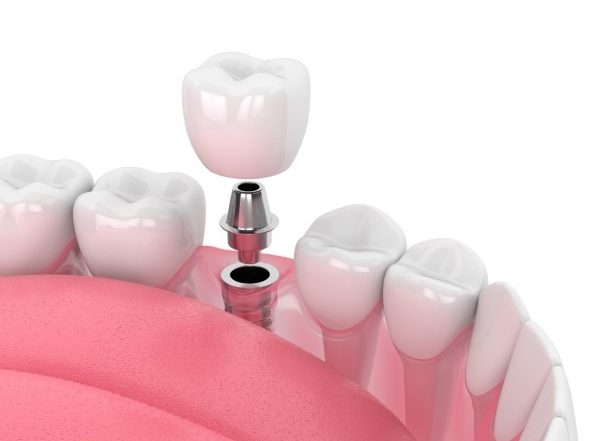
As we get older, our teeth and gums get older, too. Sometimes, this aging process means that we’re facing more oral health issues than we remember dealing with in the past. One of these issues includes periodontal disease.
What is Periodontal Disease?
This disease, when present in the mouth, begins by first affecting the gums. The entire disease affects structures of the mouth around the teeth, of course including the gums, the periodontal ligament, and alveolar bone. In the very early stages of periodontal disease, you and your dentist can take steps together to reverse it. Once it worsens and becomes more severe, treatment is recommended.
Symptoms of Periodontal Disease
- Persistent Bad Breath

Bad breath, or halitosis, is common in most people at certain times throughout the day. First thing in the morning, you’re likely to have really bad breath, especially due to the decrease of saliva production often experienced at night.
However, if this condition persists beyond what is commonly known as morning breath, there may be a larger health problem at play. Make sure to talk to your dentist if you notice it for consecutive days or weeks in a row, and they’ll be able to perform an examination to determine the source. Once you’ve been diagnosed, they’ll be able to recommend various options for how to deal with it.
If it’s a symptom of the beginning stages of periodontal disease that you’ve caught early, this means they’ll likely be able to take steps to reverse the problem before it can affect other areas of the mouth, or other symptoms can develop. Always be on the lookout for irregular oral health issues such as that one, as they can very often be insights into a bigger problem developing below the surface.
- Gum Recession

If you notice your teeth appear longer than usual, this could actually be true. Once periodontal disease begins to affect the gums, they can actually begin to pull back and recede from the teeth, exposing them more and more to make them appear longer to the untrained eye. If you notice your gums abnormally pulling back, make sure you bring it up to your dentist so they can complete a thorough exam of the gums and determine the issue.
Sometimes, gum recession can occur due to brushing too hard. So, if you do notice a little more of your teeth being exposed, try not to panic too much – gum recession is serious, but may not always be caused by a serious disease. Make sure you talk to your dentist once you notice very obvious signs of abnormal gum behavior.
- Loose Teeth
When your gums become infected and begin to recede, this means there’s very little, or even nothing surrounding the tooth to keep it rooted in place. Eventually, if the problem persists and the gums are not restored back to their full potential and health, you can experience tooth loss.
This is why it’s important to bring up gum related issues to your dentist early on. Dental implants to replace missing teeth and continue to support surrounding bone structure can be expensive, time-consuming, and a lot to adjust to. If there’s a chance to preserve your natural teeth, this is definitely the preferred and most cost-effective option – so, if you notice any teeth that seem to be coming loose, try to see your dentist as soon as possible to have a conversation and exam.
- Swollen, Red, Tender Gums
We’ll combine this symptom with another; if your gums bleed easily and often, this may be an indication that something is wrong. If you’ve just started to floss and notice some bleeding and tenderness afterwards, or you brush a little too hard one night before bed and notice a trace of blood on your toothbrush, this is a different story and may be an assortment of one time occurrences. However, if you notice frequent bleeding with no identifiable source or cause, this means it may be time to see your dentist.
If you notice pus between or around your teeth, this can also be an indication that your mouth is crying out for help. Pus is typically a sure sign of infection, and should be addressed as soon as possible. Your dentist will potentially be able to prescribe medication based on how far the infection has progressed, or can recommend other treatment options based on the current state of your oral health.
- Drastic Changes in Your Bite

Because periodontal disease can affect the structure of your mouth and even go as far as to cause bone loss, these unfortunate symptoms can easily affect the alignment of your other teeth, and cause them to shift.
Where you once had a perfectly straight smile, you may now have trouble biting down on food, chewing, or clenching your teeth together ordinarily. All of these reasons should warrant a trip to the dentist so they can determine what’s going on, and how it can be helped. Depending on the severity of the problem and how much it has progressed, they may recommend you to an orthodontist, or to a licensed periodontist for further treatment routes and options.
As for the best time to call your dentist – the moment you notice any irregularities, drastic changes, or dramatic shifts that affect the state of your oral health, your bite, or your everyday life as it pertains to your dental hygiene, you should make an appointment. Catching problems early on can ensure they don’t turn into larger issues that are far more difficult to manage, and ensures that your smile can be kept healthy and unaffected.



